You’ve just completed a job interview, and you’re feeling pretty confident. But the work doesn’t end there – making a lasting impression after the interview is just as crucial as acing the interview itself. But how do you ensure that you stand out among the sea of candidates – and increase your chances of success?
In this blog post, we’ll explore expert tips on enhancing your post-interview impact, showcasing your unique value proposition, building relationships with potential co-workers, and navigating the waiting period after the interview. These strategies will help you leave a memorable impression on your interviewer and pave the way toward your dream job.
Key Takeaways
- Send a prompt thank-you email, a sincere physical thank-you letter, and a timely follow-up email to showcase your continued interest.
- Keep all communication with your potential new company professional, customized, genuine, and concise.
- As you are waiting to hear back post-interview, we recommend that you connect with the interviewer and potential colleagues you met via LinkedIn, reflect on your performance, and continue your job search.
Maximizing Post-Interview Interactions
1. Thank You Email
A well-crafted follow-up email can make all the difference between blending in with the crowd and standing out as the top candidate. The key is to express your appreciation, emphasize your enthusiasm for the role, and draw attention to the key points discussed during the interview. By referencing specific parts of the conversation, you demonstrate that you were fully invested in the process.
- Send within 2-3 hours of the interview, if you can, but no longer 24 hours.
- A well-written thank you email demonstrates your enthusiasm and commitment to the job.
- Keep the email concise, professional, and genuine to leave a lasting impression.
✍️ Example thank you email:
Dear Mike:
I appreciate your time yesterday and enjoyed our conversation. It’s given me a chance to learn more about the opportunity and what the role entails. I think my background in sales and my current leadership position have allowed me to develop a set of skills that would be an ideal fit for your needs. I’m looking forward to hearing more from you and discussing the ways we can work together to put ABC company on a path toward more success.
Best regards,
Sarah Smith
2. Physical Thank You Letter
Sending a traditional thank-you letter by mail may seem old-fashioned, but it's a standout detail that many candidates overlook. While emails provide swift communication, taking the time to write out and physically send a letter demonstrates intention and professionalism, signaling to the hiring manager that you genuinely care about the company and opportunity. Additionally, a mailed letter arriving a few days after the interview serves as a timely reminder to the hiring manager, leaving them with a second round of a positive impression. By combining both follow-up methods, you showcase versatility and a commitment to making a lasting impact.
Mail out the letter within 24 hours of the interview and opt for same day postage.
- The letter can be in a similar format and tone as your initial thank you email, but be sure to not replicate it exactly.
Choose high-quality paper for a clean and polished appearance. Opt for a professional-looking envelope that complements your paper choice. Remember- these elements should fall in line with the look and feel of your personal brand!
Ensure your handwriting is neat or type the letter in a clean, readable font. If typing, add a handwritten signature for a personal touch.
Pay close attention to detail when writing out the company address and recipient information, and use a professional format for addressing the envelope.
3. Follow-Up Email
If you don’t hear back after you send your thank you notes, don’t email or call them right away. Hiring managers are busy and often hiring for several positions. In addition, there are cases where you might be the second choice and the manager is waiting to hear back from their top pick. If that person turns them down, you’ll be next on their list and you don’t want any black marks due to constant follow-ups and phone calls.
- Send within 1 week if you have not heard back, or the date has passed in which the hiring manager said they would reach out.
- This should be a quick note, simply inquiring about the decision-making process.
- Be sure to express your interest in the role.
- Ask if they require any additional information to make their final decision.
When you write your letter, you can also simply reply to the last email you’ve received from the hiring manager. That way, you’re responding to the conversation thread.
If you don’t have a recent email, then simply make sure the subject line contains something such like “Job Interview Follow Up.”
✍️ Example follow-up email:
Dear Mike:
I appreciate interviewing with you last week and am inquiring about any progress regarding the role of Sales Manager. You mentioned you’d be making a decision by September 15th and am wondering if there’s news to share about the position?
Of all the roles I’ve interviewed for, yours is certainly the most intriguing. I’m excited about the opportunity to create and launch a sales training program for your representatives. I have a few ideas I’d be happy to share if you’d like to talk next steps.
I’m available at your convenience. Let me know if there is any additional information you require about my background. I look forward to hearing from you.
Best regards,
Sarah Smith
4. Feedback Email
Regardless of receiving a job offer, it’s important to seek feedback from the interviewer. Requesting constructive feedback can provide valuable insights into your performance and areas for improvement.
- Send after a final decision has been made.
- Be sure to express your gratitude for the opportunity.
- Politely request advice on how you can improve for future interviews.
- Keep it short and sweet.
- Stay humble, open-minded, and appreciative in your approach.
Utilize the feedback to enhance your future interview performances by recognizing areas for improvement and making necessary adjustments. Keeping these interview tips in mind will help you succeed in your job search journey, especially when an interviewer asks you questions.
✍️ Example feedback email:
Dear Mike:
I appreciate interviewing with you last week and was disappointed I didn’t get the role. I enjoyed learning more about the company and your needs and am impressed with your track record. I am just wondering if there is any feedback you can offer me in terms of reasons why I didn’t get the offer? I’d like to ensure my future interviews are as effective as possible and would appreciate any insight you can give me.
Best regards,
Sarah Smith
Navigating the Post-Interview Waiting Period

The waiting period after a job interview can be tense, but it’s important to remain proactive. By continuing your job search efforts, you’ll continue forward in finding the right opportunity and improving your chances of success.
Connect on LinkedIn
Developing your professional network is key for sustained career success. Post-job interview, it is never a bad idea to connect with the interviewer and potential co-workers on LinkedIn! This demonstrates your ongoing commitment to the company and excitement about the opportunity.
✨ Tip: Make sure your LinkedIn profile is up-to-date and consistent with your resume, as inconsistencies can raise red flags for potential employers. A polished profile will reinforce the positive impression you made during the interview.
Reflect on Your Performance
Reflecting after an interview is an effective method to identify areas for growth and improvement. By analyzing your performance, you can make adjustments for future interviews, such as refining your answers, improving your body language, or enhancing your preparation. An honest self-assessment and having self-awareness will help you continuously grow and develop, ultimately leading to better performance in future job interviews.
✨ Tip: Reflect on your interview preparation. How much time did you spend researching the company and outlining your answers to common questions? Did you feel prepared? Could you have spent more or less time? Note this for future interviews to find your preparation sweet spot!
Stay Proactive in Your Job Search
Don’t halt your job search while waiting for a response from your recent interview. Continue applying for other positions and networking to increase your chancces of landing the best job for you. As a job applicant, staying proactive in your job search can provide you with backup options, give you a competitive advantage, and create networking opportunities.
✨ Tip: Invest in yourself and your skills during this time. Take online courses, workshops, or certifications to enhance your knowledge and show your dedication to professional growth. This will make you more marketable and demonstrate your commitment to your career!
Summary
In conclusion, standing out after a job interview is a multifaceted process that requires thoughtful follow-up, showcasing your unique value proposition, building connections with potential co-workers, and staying proactive during the waiting period. By implementing these expert tips and strategies, you’ll not only leave a lasting impression on your interviewers but also increase your chances of landing your desired role.
Remember, the key to success lies in your ability to learn, adapt, and improve. Embrace feedback, continuously develop your skills, and stay committed to your job search. With persistence and determination, you’ll soon find the perfect opportunity!
Frequently Asked Questions

How should you connect with potential colleagues on LinkedIn?
- Be sure your profile is professional and up-to-date.
- Personalize your connection request with a small note mentioning the role and your interview. This can short, sweet, and use similar verbiage to your thank you email.
- Appropriately engage with their content to show continued interest in them and the company.
- If for any reason they do not accept your connection request, do not take it personally!
How do I optimize my chances of getting the job after an interview?
Send a thank you note expressing your gratitude, use customized, professional communication to stay in touch, research the company and position further, remain patient, connect on LinkedIn, and mind your social networks. Doing this will increase your chances of getting the job.
What to do if you get ghosted after the job interview?
- Wait for the expected timeframe before following up.
- Send a polite follow up email inquiring about the role and remind them of any interview highlights and your qualifications.
- Be patient.
- After a reasonable amount of time, send another follow-up email to express your continued interest and inquire about the status of the role.
- Reflect and learn from the experience and continue to move forward in your job search.
Ready Stand Out and Land Your Next Role?
We are here to help! Our ResumeSpice team may be known for being the #1 rated resume writing service in the US, but that's not all we do. Our dedicated team is here to help you stand out in the job market and provide you with customized interview prep, tailored career coaching, professional LinkedIn profile writing, and more! Check out all of our career services here. Are you ready to stand out from the rest? Call us at 832.930.7378 or connect with us online.







